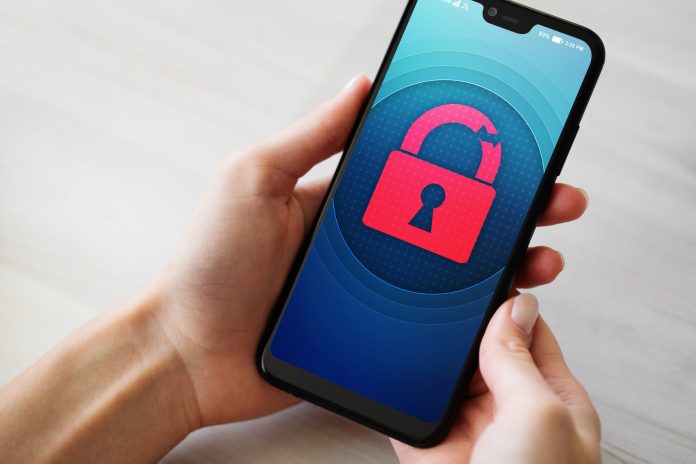Tech geek Devin Smith highlights how the mobile industry has been revamped to counter security threats posed by cyber crime in this article
The smartphones are equally vulnerable as our desktops and cybercriminals are eyeing on the perfect opportunity to trespass and have bread and butter over our data. Back in 2018 there were a total of 151,359 mobile banking malwares and 60,176 new mobile-based Trojans reported.
Our mobile phones are a hotbed of precious information for hackers. Similarly, the mobile phone of an employee who works n a reputable company is worth 1000 bucks. That’s the reason why mobile security should be atop of your company’s worry.
While it is easy to focus on the overall malware as a subject, the truth is that mobile malware is less common, it is more like the odds of you getting struck by lightning, but it is equally true to keep yourself protected at all times. You never know when a malware hit you up on your smartphone.
The nature of our mobile phone operating system defends us to a very extent, but to get hold of such threats, you need to brace yourself accordingly and know which type of threats cyber attacker pose.
What are the types of mobile cyber threats?
There are three types of threats using which a cyber-attacker can affect a mobile device.
- Application-based
- Network-based
- Web-based
Application-based threats
- Malware – It is a malicious entity which installs on your phone without your consent and can alter your bill and send unsolicited messages or even give the attacker full control of your device.
- Spyware – It is used to collect the data like call history, text messages, contact list, and photos. The information is then used for malicious purposes.
- Vulnerable Application – These are apps which exploit from vulnerabilities. They tend to access personal information and perform malpractices without the owner’s knowledge.
Network-based threats
These threats are carried out using cellular and other wireless networks, which include Wi-Fi and Bluetooth. They both pose a threat to the mobile user in different classes.
- Network Exploiting Malware – Takes advantage of the flaws of the mobile operating system, and once it gets installed, it then automatically installs malware into the phone.
- Wi-Fi Sniffing – Intercepts the data which flows in the air between your Wi-Fi and the device. Applications which hardly use any security measure and send unencrypted data across the network are the main reason for this threat.
Web-based threats
Since mobile devices are frequently connected to the internet, they are more susceptible to an online threat. Following are the threats you might bump into.
- Phishing Scams – They tend to use email, text messages, Twitter and Facebook to send you a malicious link and then lure you into clicking on it which may end up you losing all of your precious mobile data.
- Browser Exploitation – The cyber attackers take full advantage of the vulnerabilities in the web browser; it gets triggered when a browser exploits to install malware and perform malicious actions.
- Drive-By Downloads – It is an automatic approach which downloads the application from a web page and requires action and starts automatically.
You might have easily come across a realistic mobile security hazard in some areas. All of these threats are being pressed up by privacy enthusiast and good hackers.
Here are the three threats which are trending and are marked super important to care for.
-
Social engineering
One true and tried-trickery in the mobile arena is social engineering. It has troubled on many fronts and is still effective as of today.
A staggering 91% of cybercrime begins with a phishing email. As per the same report, hackers use tactics like whaling, impersonating, W2 and credential harvesting to trick and lure people into malicious links.
According to IBM, users are three times likely to respond to a phishing attack than on desktop because a phone is where people first see a message and on desktop 4% people are likely to click on a phishing link.
Almost everyone runs personal stuff on the internet every day; the notion of receiving the personal email alongside the work doesn’t count.
-
Poor and weak passwords
You might have read it everywhere; a strong password is a key to robust security online. Some users still don’t understand the value of a strong password they still take it for granted, when will they understand the importance of a password?
If you are carrying a smartphone which has both your personal and company’s data, then settling for a weaker password is nothing but a fool’s decisions.
Breaching your phone’s password means access to all of your data. Don’t believe me?
Here is what a survey by Google found out;
- Nearly half of Americans use passwords that they have already used before.
- Nearly third of them are not aware of two-factor authentication and don’t use them either.
- Only a quarter of netizens actively use password manager who eventually means most of them don’t have a strong password.
Things are worse than this, as according to LastPass, more than half of the professionals use the same password for both work and personal accounts.
-
Data leakage
Data leakage has been the most worrisome threat of 2019. When it comes to data, breaches companies, have a 28% chance of losing their data and experiencing a data leakage as seen in the last two years.
What makes the issues more complex is that it happens due to ill-advised decisions and due to the transfer of information which is evident to everybody.
There are data leakage tools which are far effective for protection. Such softwares prevent the exposure to equally sensitive information and protects in accidental situations.
Concluding it all
As per Verizon, weak passwords are to be blamed for the majority of mobile-based threats. More than 80% of the data breaches in businesses due to this threat.
Mobiles, in particular, are at greater risks and pose a real danger to the organization’s data. A sloppy employee can ruin all the efforts done by the company to protect its cybersecurity. It is super-important for the business to take their online privacy and security serious or get ready to face the adversities of the online threat.
Devin Smith











